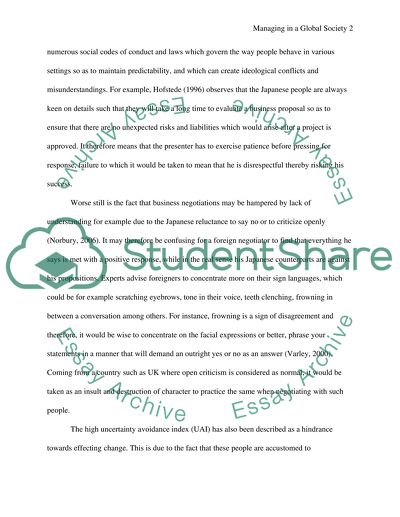Cite this document
(“Managing in a global society Essay Example | Topics and Well Written Essays - 1500 words - 1”, n.d.)
Retrieved from https://studentshare.org/environmental-studies/1411660-managing-in-a-global-society
Retrieved from https://studentshare.org/environmental-studies/1411660-managing-in-a-global-society
(Managing in a Global Society Essay Example | Topics and Well Written Essays - 1500 Words - 1)
https://studentshare.org/environmental-studies/1411660-managing-in-a-global-society.
https://studentshare.org/environmental-studies/1411660-managing-in-a-global-society.
“Managing in a Global Society Essay Example | Topics and Well Written Essays - 1500 Words - 1”, n.d. https://studentshare.org/environmental-studies/1411660-managing-in-a-global-society.


